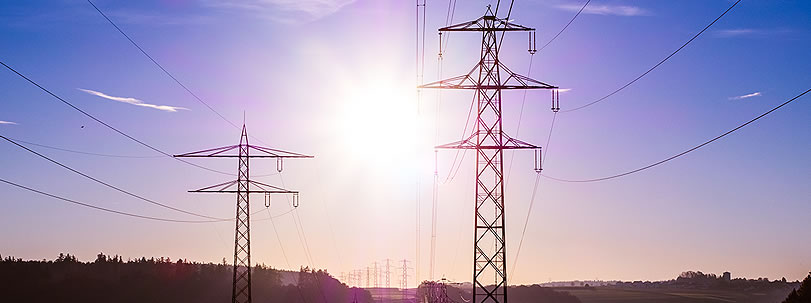The FiT Policy, 2021 and the Renewable Energy Auctions Policy, 2021

Key highlights
There have been a number of crucial developments affecting the Kenyan energy sector recently, including:
- the appointment by the President of a Taskforce to review Power Purchase Agreements (PPAs);
- a moratorium on all PPAs not concluded as at 29 March 2021 (including any letters of support and legal opinions pending issuance by the Attorney-General) for a period of 6 months, pending the Taskforce report;
- a moratorium on the renewal of any PPA whose renewal would occur during the pendency of the Taskforce;
- publication of the proposed ‘Updated Least Cost Power Development Plan (LCPDP): Study Period 2020-2040’, which is intended to guide power policy and investment decisions in the country when adopted;
- publication, in April 2021, of a 10 year Least Cost Power Development Plan (LCPDP) for the period 2021-2030, derived from the longer term LCPDP for 2020-2040. The update is intended to make the long-term planning assumptions more predictable given the greater certainty in planning for a 10 year period compared to a 20 year one; and
- proposed rescheduling of Commercial Operation Dates (CODs) and tariffs for several projects in the development pipeline in a bid to align with the optimised case scenario under the LCPDP.
In addition to the above, the Ministry of Energy (MoE) has now issued The Feed in Tariffs Policy on Renewable Energy Resource Generated Electricity (Small-Hydro, Biomass and Biogas), January 2021 (2021 FiT Policy) and The Renewable Energy Auctions Policy, January 2021 (Auctions Policy).
The 2021 FiT Policy is a revision of the 2012 FiT Policy with substantial changes introduced on the development of renewable energy projects in Kenya, in a bid to align with the Energy Act, 2019 (Act) and other recent developments in the Kenyan energy sector.
The Auctions Policy is made pursuant to the Act, which provides that the Energy and Petroleum Regulatory Authority (EPRA) may run a competitive process before awarding a generation licence under the Act.
We understand that implementation of both the 2021 FiT Policy and the Auctions Policy will be subject to the report of the Taskforce appointed above and approval by the National Treasury.
In this Alert, we have summarized the key changes in the 2021 FiT Policy and the notable provisions of the Auctions Policy even as we await direction from the MoE on their implementation.
The 2021 FiT Policy
|
Key changes in comparison to the 2012 FiT Policy |
||||||||||||||||||||||||||||||||||||||||||||||||||
|
The FiT Policy - a brief introduction |
The FiT Policy is an instrument for promoting generation of electricity from renewable energy sources by guaranteeing a pre-determined tariff for producers for a period of 20 years. |
|||||||||||||||||||||||||||||||||||||||||||||||||
|
Exclusion of medium to large scale projects from 2021 FiT Policy |
|
|||||||||||||||||||||||||||||||||||||||||||||||||
|
What happens to existing approved projects (larger than 20MW) whose PPAs have not been signed? |
|
|||||||||||||||||||||||||||||||||||||||||||||||||
|
Cumulative capacity limit for FiT projects in Kenya |
|
|||||||||||||||||||||||||||||||||||||||||||||||||
|
Standardised PPAs |
|
|||||||||||||||||||||||||||||||||||||||||||||||||
|
Capacity Payments and Deemed Generated Energy (DGE) Payments |
|
|||||||||||||||||||||||||||||||||||||||||||||||||
|
Pass through to consumers on part of the offtaker |
|
|||||||||||||||||||||||||||||||||||||||||||||||||
|
No Government letter of support |
|
|||||||||||||||||||||||||||||||||||||||||||||||||
|
FiT Values |
The applicable FiT values under the 2021 FiT Policy as compared with the 2012 Fit Policy values are tabulated below:
|
|||||||||||||||||||||||||||||||||||||||||||||||||
|
Application |
|
|||||||||||||||||||||||||||||||||||||||||||||||||
|
Developer incorporation requirements |
|
|||||||||||||||||||||||||||||||||||||||||||||||||
|
General Comment - impact on projects |
|
|||||||||||||||||||||||||||||||||||||||||||||||||
The Renewable Energy Auctions Policy, 2021
|
Key Highlights |
|
|
Legal basis and Objectives |
|
|
Application |
|
|
Site Selection |
|
|
Auction Process |
|
|
Project Agreement obligations |
|
|
Revision of the Auctions Policy |
|
|
General Comment |
It appears that the Auctions Policy provides a general framework within which auctions shall be undertaken in the Kenyan renewable energy sector. It is likely that the Auctions Policy shall be updated and beefed up once initial projects stress-test the implementation of the same. |




